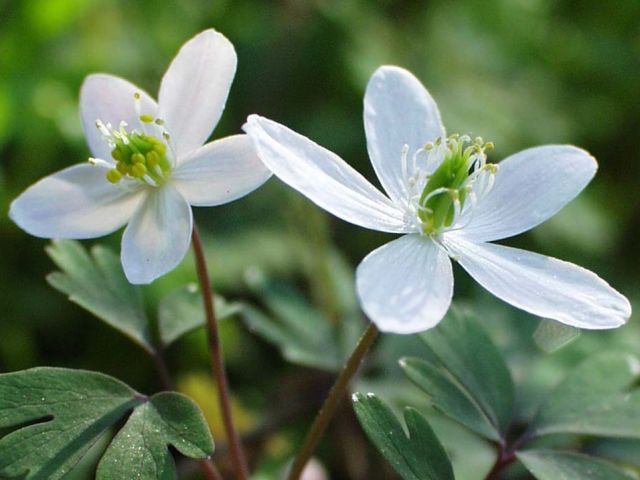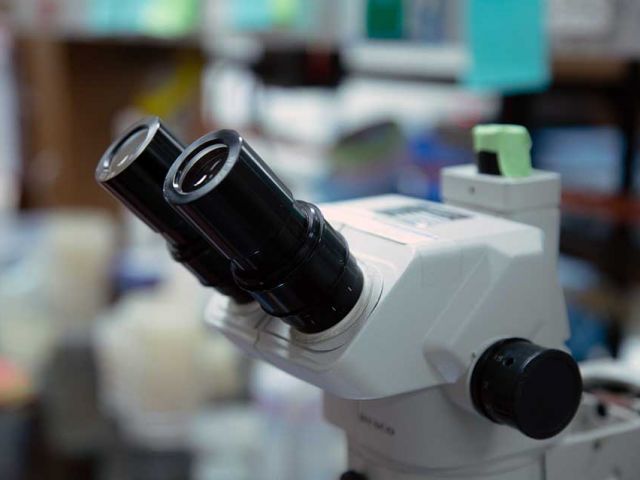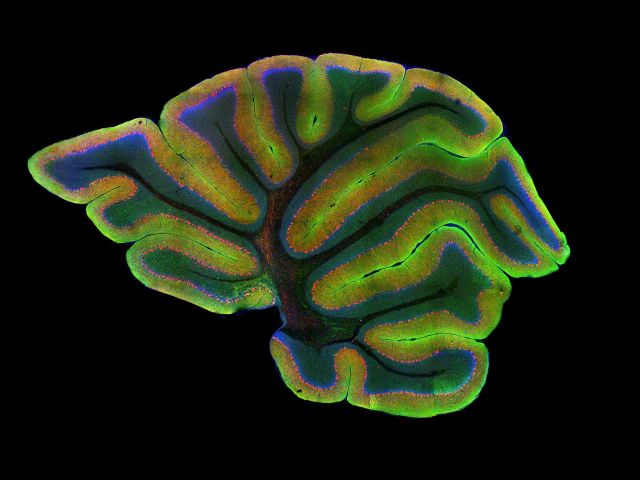Prospective Students
Information for freshman applicants, transfer students and program descriptions.
Biology education at UCSB is distributed between two large departments; the Department of Ecology, Evolution and Marine Biology (EEMB)and the Department of Molecular, Cellular and Developmental Biology (MCDB). The Bachelor of Arts (BA) and the Bachelor of Science (BS) degrees in Biological Sciences are offered collaboratively by the two departments and are designed to provide students with a broad range of experiences within the diverse field of biology. In addition, 8 specialized Bachelor of Science degrees are offered. These more focused majors allow students with particular interests and career goals to gain more experience in the area of their interest.
All students interested in any area of the biological sciences enter UCSB as pre-biology majors. The pre-major provides a strong interdisciplinary foundation for all the majors and provides students with opportunities to explore the subdisciplines of biology before deciding which biology major best fits their goals and interests. After completion of a subset of this key preparatory coursework, students may petition to declare one of the 10 biology majors. Over 150 upper division courses are available for students in these majors. These courses include laboratory and field studies, lectures and seminars, and independent studies and group projects.
EEMB Undergraduate Programs
The programs available through the Department of Ecology, Evolution and Marine Biology reflect the range of disciplines within modern ecology, evolution, and organismal biology. Courses, seminars, and laboratory and field opportunities exist in population and community ecology, evolution, ecosystems ecology, oceanography, genetics, physiology, animal behavior, parasitology, zoology, and plant science. The department is intrinsically interdisciplinary with faculty engaged in marine science, limnology, paleontology, environmental change, conservation, and biogeography. Many students participate in faculty research programs including field research in California and throughout the world. The UCSB Education Abroad Program provides additional opportunities to investigate tropical forest and coral reefs. EEMB majors provide excellent preparation for careers in environmental sciences, health sciences, agriculture, education, and scientific research.
MCDB Undergraduate Programs
The programs available through the Department of Molecular, Cellular, and Developmental Biology (MCDB) reflect the range of disciplines within the fields of modern molecular biology. Courses, seminars, and laboratory opportunities exist in biochemistry, cell biology, developmental biology, genetics, immunology, microbiology, neurobiology, plant biology, and virology. Interdisciplinary work reflects faculty interest in marine sciences, pharmacology, and the biomedical sciences. Students are encouraged to involve themselves in faculty-sponsored research programs, research seminars, and various internship programs available in the health sciences and the biotechnology industry. MCDB majors provide excellent preparation for careers in the health sciences, biotechnology, the pharmaceutical industry, and agriculture, as well as for research careers in academic, industry, and governmental laboratories.
How To Apply
Applications to the UCSB Biological Sciences Undgergraduate program are submitted online through UC admissions.
General Questions
Walk-in Advising Hours:Mon-Thur 9:30-11:30am and 1-4 pm
Friday 9:30-11:30am
bio-adv@lifesci.ucsb.edu
Academic Advisors
FAQs
- How many upper division biology courses should I take per quarter?
-
We recommend taking two upper division biology courses per quarter (assuming 8.0 units per quarter) and, if possible, fulfilling area specific requirements first starting one's Junior/3rd year. This will give you the required 48.0 units required for most of our majors. For more detailed recommendations for the MCDB majors please go to: Resource Documents: Recommended Schedule - MCDB majors.
- Does the Biology program offer a Minor?
-
The biology program does not offer a minor.
- How can I find out which courses to take to meet the transfer requirements?
-
Go to ASSIST.ORG for transfer articulations. Please note: the courses are evaluated as an entire series and course to course articulations do not exist. Please complete the entire series at the same school.
- When is the earliest I can declare the full major?
-
Freshman admits may declare the full major at the end of their second year provided that they have completed MCDB 1A,1B, EEMB 2, 3 (2.0 gpa required), MCDB 1AL, EEMB 3L and either MCDB 1BL or EEMB 2L (2.0 gpa required), Chem 1ABC and two other preparatory courses (2.0 gpa required). Please see the Pre-Biology major requirement sheet for more detailed information.
Junior transfer students may declare the full major after their second quarter (Winter) - usually 4 upper division biology courses completed (2.0 gpa required)
For all students - At the time of petition for full major, you must have a 2.0 or higher grade point average in all courses attempted toward the major within preparatory and within upper division. Also grades earned must meet the grade prerequisites for the full major.


